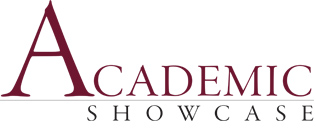
APRIL 18, 2017

9:30-10:00
Paper
Strawberry Fields Forever: Lennon’s Hesitant Declaration of Self
Paul Jenkins
Few Beatles songs have demanded and received more attention than John Lennon’s “Strawberry Fields Forever,” a single released in 1967. While many casual fans have viewed it as an incoherent, drug-influenced piece of self-indulgence, a number of scholars (most notably Everett and Turner), have celebrated the song as a complex statement of individuality from a conflicted man seeking his real identity. Lennon struggled his entire life to come to terms with who he really was. That he never truly succeeded is evident in this song’s text and its musical accompaniment.
10:00-10:30
Paper
Examining the “Teacher-Tester Activity” on Student Performance and Piracy
Alan Schulte, Jennie Brown
Research indicates that one reason students “borrow” the work of others is because they do not have a strong understanding of the material. However, students’ comprehension of the material can be improved by using the ""Teacher-Tester Activity"" because it pushes students to think about and access course content in another way, thereby helping them to gain a better understanding of the material. We predict that the application of the “Teacher-Tester Activity” will increase student performance and lower the similarities between student papers. Writing assignments from statistics courses were examined under two conditions: the instructor explained the assignment using the Teacher-Tester Activity, or the instructor explained the assignment by reviewing it and answering student questions. Assignment grades were compared for both conditions. Software was used to examine the similarities between student papers (more similarity may be more indicative of “borrowed work”). Data collection and analysis is currently in progress and results will be presented.
10:30-11:00
Paper
Academic Assessment in Motion
Jennie Brown
There is criticism that academic assessment simply focuses on performance of students at one point in time. Additionally academic assessment tends to focus on delivery of knowledge rather than students’ responsibility for their own learning. To address this, faculty must require that students create and complete intellectual investigations on their own. This view is consistent with current practices in the Pierce psychology curriculum. Students engage in their own intellectual investigations (where they conduct a literature review and empirical investigation) at least three times (approximately sophomore, junior, and senior year). Student research papers are assessed as the students move through the curriculum to examine change in student learning and performance. Papers were also examined to determine how well they met the American Psychological Association’s Goals for Undergraduate Education.
11:00-11:30
Paper
Why free trade is good for you
Frank Cohen
Free trade brings prosperity to the human race and, in particular, is essential to the balanced, long-term growth of the American economy. As Adam Smith argues in the Wealth of Nations, when nations bring down barriers to trade, nations can specialize in what they do best rather than try to be "masters of mankind" who can produce "all for ourselves." The goal of this work is to explain how domestic policy, multi-national agreements, and international trade relations can advance or weaken American and other nations' fundamental interest in the promotion of prosperity.
11:30-12:15
Demonstration
A Brief Explanation and Demonstration of Electromagnetic Induction, an experiment of General Physics 2
Luke Parkhurst
This demonstration will be viewing electromagnetic induction conducted in General Physics 2 lab class of Franklin Pierce University. In this experiment, we can observe the magnetic and electric forces interacting with one another through different tests. These test allow observation of induced current with the use of magnets and coils, magnetic fields around electric currents and forces on electric currents by magnetic fields. One of the experiments in the lab allow to measure the electron charge to mass ration by observing electron paths in an orderly magnetic field. Along with this demo, we will show different set of experiments related to the electromagnetic induction.
12:15-1:30
Demonstration
Moot Supreme Court Hearing of Kosilek v. Spencer (2014, U.S Court of Appeals, First Circuit)
Ian Corey, Holly Hay, Melissa Bailey, Dante Marovelli, Margaret Bell, John Massaro, Tyler Desautels, Ronald Morrissey, William Robinson
This is a Supreme Court, mock hearing of a real appellate case that has never reached the Supreme Court. We are divided into three groups, petitioner counsel for Kosilek, respondent counsel for Spencer, and justices. Scenario: The United States Court of Appeals, First Circuit decided against Michelle Kosilek, Plaintiff and Appellee that the Massachusetts Department of Correction under commissioner, Luis Spencer violated the plaintiff's Eight Amendment rights, under the "cruel and unusual punishment" clause. The plaintiff has been granted a writ of certiorari by the United States Supreme Court to have heard her appeal of the First Circuit decision. State inmate brings action against Massachusetts Department of Corrections (DOC), alleging that DOC’s refusal to provide male-to-female sex reassignment surgery (SRS) to treat inmate’s gender identity disorder (GID) constitutes inadequate medical care and deliberate indifference to inmate’s serious medical needs, in violation of Eighth Amendment.
2:15-3:30
Demonstration
Paper Marbeling
Aaron Tracey
Paper marbling was an important trade good for the Japanese people, and it could be said that this technique is integral for the rise of Japan. The art of paper marbling is said to have started as early as the 9th century in Japan. The techniques they used were called Suminagashi or “ink floating”. These papers became popular with the royal family, which then brought the papers, and the process, into popularity. The process of Suminagashi begins with creating traditional black stone ink or indigo blues made from local and traded minerals. The first Far East marbled paper came into Venice Italy within the 16th century, and from there it was introduced to Germany, Spain, France, Brittan and more. The paper came to Europe on boats and then was carried on foot to many different large cities around Europe, spreading the trade routes for Japan.